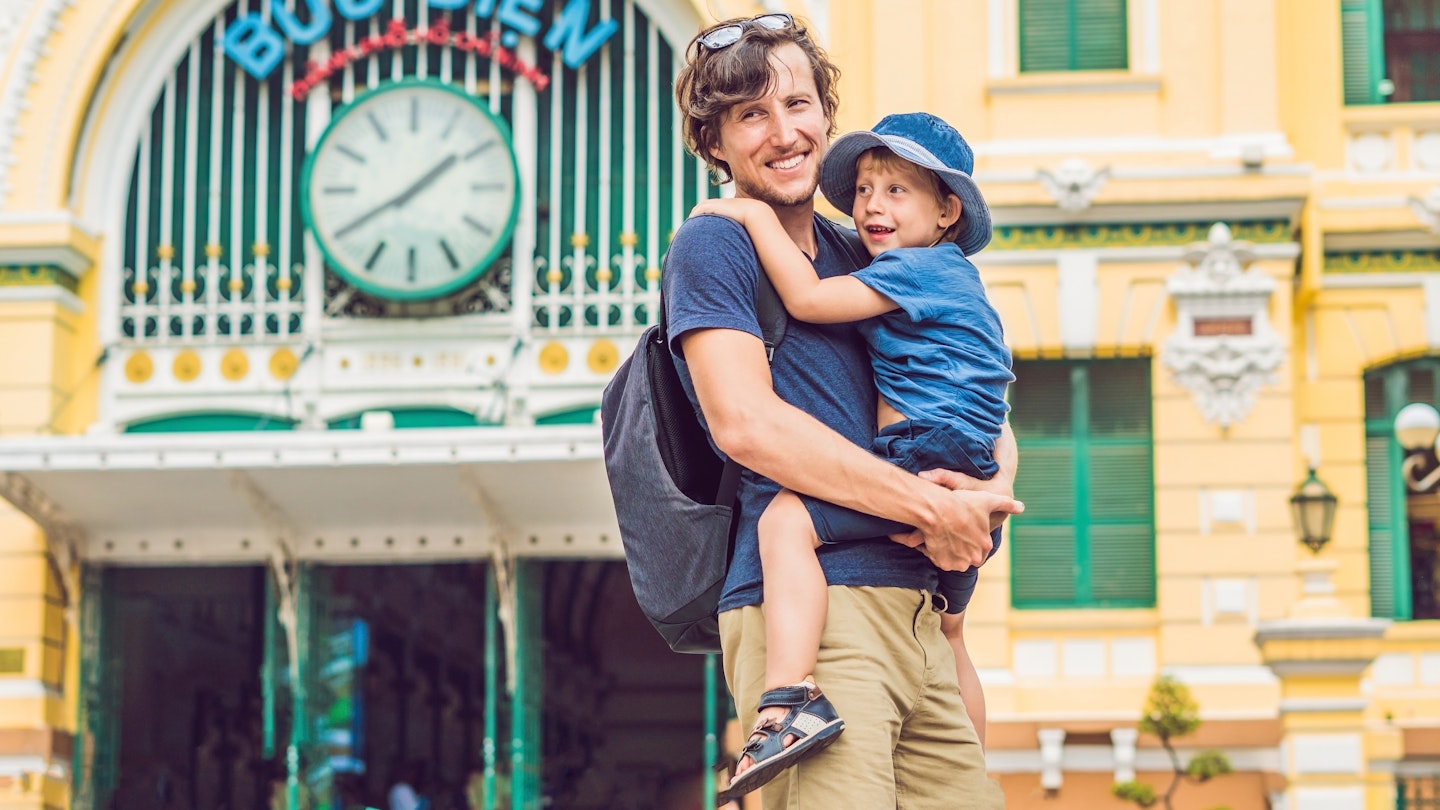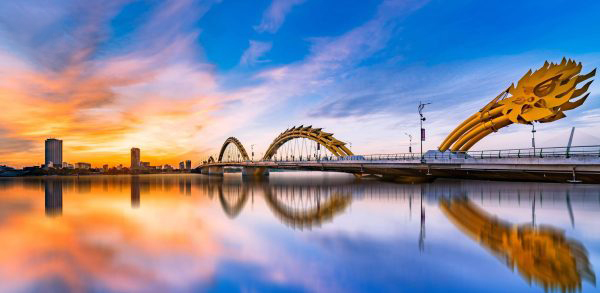
Read on for all the key things to know before you visit Vietnam © Elizaveta Galitckaia / Shutterstock
Adventures abound in Vietnam. You can climb the heights and scuba dive the lows, immerse yourself in culture or just kick back on the sand, confident in the knowledge that a fantastic meal is waiting for you at the end of the day. But there are things to know before you go, to avoid pitfalls in paradise. These are our top tips :
1. Pack for the climate
Perhaps the most important consideration when planning a trip to Vietnam is the weather. The south of the country sits firmly in the humid tropics, but the climate becomes increasingly temperate as you head north, and the highlands around Sapa can be downright chilly in winter. If you plan to visit both halves of the country, bring some clothes for the cooler highlands as well as the steamy Mekong Delta.
 Be prepared for the weather including monsoonal downpours but don’t let them stop you from having fun © Wirestock Images / Shutterstock
Be prepared for the weather including monsoonal downpours but don’t let them stop you from having fun © Wirestock Images / Shutterstock
2. Be rain ready
Vietnam is soaked by the southwest monsoon from May to September and the northeast monsoon from October to April, so check the weather in the areas you plan to visit. Trekking in the northwest and boat trips in Halong Bay, for example, can be a soggy experience in July and August, but this is a great – if popular – time to bask on the central beaches. Even in the rainy season, it doesn’t rain all day, every day, so bring a raincoat or umbrella and make the best of the smaller crowds and lower prices.
3. Investigate the visa options
There are numerous ways to arrange the paperwork for a visit to Vietnam, some cheaper and quicker than others. You may not need a visa at all for a short trip, and electronic visas and visas on arrival are available for many nationalities – much less hassle than going to the embassy in person. Read up on the visa requirements before you book your flights, to avoid paying more than you need to, or getting held up by red tape.
4. Get your jabs
As with anywhere in the tropics, there are tropical illnesses to be aware of in Vietnam. See your doctor at least a month before you travel to get up to date with vaccinations, and arrange anti-malarial medication if you plan to visit rural areas.
Mosquitoes can also carry dengue fever, so bring repellent. On arrival, avoid drinking tap water and use antibacterial hand gel to reduce the risk of stomach bugs; a medical face mask can reduce the risk of respiratory infections and help with pollution in big cities.
 Prebook accommodation and transport if you’re traveling in Southeast Asia during Tet (Lunar New Year) © HuyThoai / Getty Images
Prebook accommodation and transport if you’re traveling in Southeast Asia during Tet (Lunar New Year) © HuyThoai / Getty Images
5. Book ahead for Tet and the holiday peak
Booking transport, accommodation and tours ahead of time is not essential, but it’s a good way to avoid disappointment if you come at a busy time, such as July and August on the central coast. If you plan to be in Vietnam during the Tet (Lunar New Year) festival in late January or early February, having transport and accommodation in place before you arrive is a very sensible precaution.
There is a caveat, however – book directly with operators where possible. If you go through an agency, you’ll pay more, and some travelers have reported not getting the services and standards they were expecting when booking through third parties.
6. Factor sleeper buses and trains into your itinerary
Domestic flights in Vietnam are inexpensive but there are less polluting alternatives. When planning long-distance travel, don’t overlook the country’s overnight trains and buses – you’ll save the cost of a night’s accommodation and cover big distances, without eating into your sightseeing time. Reserve a fully horizontal berth for a more comfortable night’s sleep – both buses and trains have them. The booking site UMA Travel is a good place to start investigating the options.





